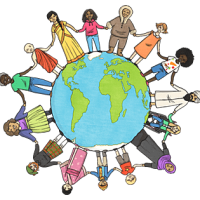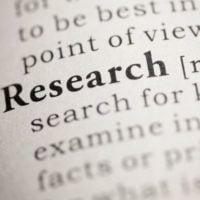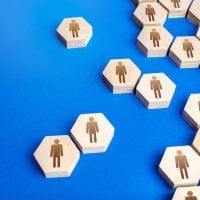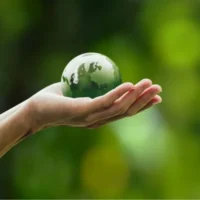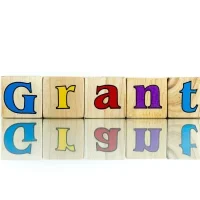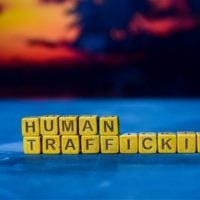The Office of Press Relations, United States Agency for International Development (USAID) on November 18, 2019, released a press note that the USAID Administrator, Mark Green and the Advisor to the President, Ivanka Trump announced that the W-GDP Initiative Fund will now increase its funding to $100 million.

So, what is this W-GDP Initiative Fund?
The W-GDP Initiative Fund is the Women’s Global Development and Prosperity (W-GDP) Initiative Fund which was established by the US President Donald Trump in February 2019 to advance global women’s economic empowerment.
The Fund has identified three main pillars:
1. Women Prospering in the Workforce: Workforce Development, Vocational Education, and Skills Training
Goal: Increase women’s global labor force participation and advancement in the workplace by providing women with quality education, training, and support, so they can secure and thrive in well-paying jobs in their local economies.
2. Women Succeeding as Entrepreneurs: Access to Capital, Markets, Networks, and Mentorship
Goal: Increase the access of women entrepreneurs and business owners to financing, market opportunities, and training to establish and grow their businesses.
3. Women Enabled in the Economy: Remove Restrictive Legal, Regulatory, and Cultural Barriers
Goal: Promote an enabling environment that increases women’s economic empowerment by reducing barriers and enhancing protections in policies, laws, regulations and practices (public and private) to facilitate women’s participation in the economy.

In July 2019, Mark Green and Ivanka Trump had announced that the Fund has partnered with 200 NGOs, bilateral, multilateral, universities, foreign governmental agencies and private sector to reach out to more than 100,000 women across 22 countries in support of the three pillars.
Some of the projects funded under this Fund are:
- Benin. A Micro-Journey to Self-Reliance: Economic Reintegration for Victims of Gender-Based Violence: Reintegrate at least 170 women victims of gender-based violence into the economy through increased employment and entrepreneurship opportunities.
- Brazil, Chile, Colombia, México, and Perú. Women Prospering in Technology: Work with information and communications technology companies to equip 8,700 women with the skills needed for placement and promotion in tech sector jobs.
- Côte D’Ivoire. Pro-Jeunes Vocational Training for Women in Energy: Provide vocational training and support to 750 postsecondary young women in solar-energy sales, installation, and service as entrepreneurs and employees for solar-powered micro-grids.
- Ethiopia, Liberia, Mozambique, Tanzania, and Zambia. Property Rights for Women’s Economic Empowerment: Ensure women’s property rights through revising laws and regulations to improve the ability of millions of women to own, inherit, or use land across Africa.
- Georgia. Supporting Entrepreneurial Skills (YES-Georgia): Provide focused technical assistance for 2,500 women entrepreneurs and employees to increase their earnings and facilitate access to finance for women entrepreneurs.
- Ghana. USAID Global Development Alliance with Alaffia Alliance: Establish new processing operations in Ghana to create employment opportunities for 9,500 women in Ghana and link them with markets in the United States.
- India. Producer-Owned Women’s Enterprises: Create 28 women-owned enterprises in the creative manufacturing sector that will connect 6,800 women producers to commercial supply chains in natural and biodegradable products.
- Indonesia. Jadi Pendusaha Mandiri (JAPRI) – Becoming an Independent Entrepreneur: Create 2,000 registered women-owned enterprises and support growth in income and revenue for 5,000 women in poultry supply chains.

- Papua New Guinea. Women’s Economic Empowerment: Support the growth of 40 women-led enterprises while reforming discriminatory laws and business practices that affect 50,000 women in Papua New Guinea.
- The Philippines. The Journey to Self-Reliance through Women’s Economic Empowerment: Work with the private sector to increase earnings for 3,800 women entrepreneurs and 12,000 households, and assist local governments to address barriers that prevent women’s full economic participation.
- Rwanda. Women in Rwandan Energy (WIRE): Enable 1,400 women to break into the fast-growing energy sector, while working with the Rwandan Government and the private sector to bring even more women into this traditionally male- dominated field.
- Sénégal. Women’s Entrepreneurship Promotion and Business Investment Activity: Work with Peace Corps and the private sector to create 1,500 new jobs for women in agribusiness and equip 20,000 women with the necessary skills to increase their earnings.
- South Africa. Women Enabling Women: Create an eco-system of women’s economic empowerment by establishing 1,000 women-owned child-care centers, which will create jobs for thousands more women while reducing the burden of unpaid care for women in the workplace.
- West Africa. Women’s Economic Empowerment in the West Africa Trade and Investment Hub (WATIH): Ensure women-owned and managed Ghanaian agribusinesses will have greater access to markets for trade and investment.
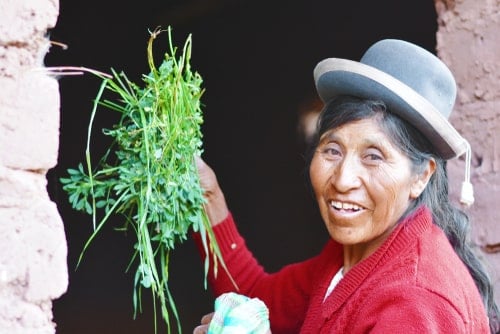
Major Partners
W-GDP has partnered with a number of programs and US agencies (such as the Department of State, The Department of the Treasury, Department of Labor, Department of Commerce etc), we take a look at the major ones that offer opportunities where NGOs can participate and benefit from by contributing to the goals of this Fund.
We-Fi
The Women Entrepreneurs Finance Initiative (We-Fi) supports women entrepreneurs by scaling up access to financial products and services, building capacity, expanding networks, offering mentors, and providing opportunities to link with domestic and global markets.

We-Fi allocated $249 million over two financing rounds in 2018 and 2019 to implementing partners for work in sub-Saharan Africa, Asia, the Middle East and North Africa, and Latin America and the Caribbean.
The programs aim to benefit 115,000 women-owned SMEs. Projects are implemented in over 50 countries with over half of the funds going to low income (IDA-eligible) countries, including many facing fragile and conflict-affected situations. It has mobilized $2.6 billion in public and private funds.
On November 1, 2019, a new competition was launched under We-Fi called SDGs & Her Competition.
SDGs & Her is an online competition for women-led micro and small enterprises to showcase how they are supporting the SDGs through their business operations.
The objectives of the initiative are to:
- recognize women implementing the Sustainable Development Goals (SDGs), including women business owners of microenterprises;
- increase knowledge about the SDGs and their potential impacts on women among non-traditional audiences; and
- collaborate with private sector partners on all SDGs, but SDG5 in particular; to share best practices and innovative ideas.
Winners will receive leadership training, mentoring and will be flown to Washington DC, for an event at the World Bank Group-IMF Spring Meetings in April 2020 , where they will showcase their achievements.
To be eligible you must:
- be a woman owner of a business that has been in operation for at least 3 years
- own a micro-enterprise, with at least 1 and no more than 9 employees
- have a loan eligibility of under USD $10,000 or annual sales of under USD $100,000
- OR
- own a small-enterprise, with at least 10 and no more than 49 employees
- have a loan eligibility of under USD $100,000 or annual sales of under USD $3,000,000
The deadline for the competition will close on January 10, 2020. Learn more here.
The first ever SDGs&Her competition in 2018 attracted over 1,200 contenders through an online competition platform from 88 countries. The 2019 contest attracted over 1,200 entries from all regions of the world: Sub-Saharan Africa, Latin America and the Caribbean, South Asia, the Middle East and North Arica, Europe and Central Asia, and East Asia and the Pacific.
The WomenConnect Challenge
The WomenConnect Challenge is a global call for solutions to increase women’s access to digital technology and life-enhancing services that can reduce poverty and drive inclusive economic growth.
It was designed to identify and support solutions that empower women and girls, via access to, and the use of, digital technology to drive positive health, education, and livelihood outcome for themselves and their families.
During the last two years (2018 and 2019), the Challenge launched two successful round of funding by accepting applications for innovative projects that aimed to reduce the women’s digital divide.
During the second round, nine grantees were given grants to implement the projects in 13 countries under this Challenge to “help bridge the digital gender divide by addressing socioeconomic, cultural, policy, and financial-inclusion barriers that limit women’s access to, and benefit from, digital technology.”
The next round of WomenConnect Challenge is expected to open in mid-2020. Learn more here.
International Visitor Leadership Program (IVLP)
Under the W-GDP Initiative, the Bureau of Educational and Cultural Affairs (ECA) of the US Government is offering the International Visitor Leadership Program (IVLP) entitled “W-GDP: Overcoming Barriers to Women’s Economic Participation.”

The W-GDP IVLP project will include visits to cities across the United States, offering meetings with federal, state and local governments, private companies, business incubators, and financial institutions to observe the social, economic, and political factors that influence and encourage women’s full participation in the global economy.
Participants will focus on ways to enhance protections in policies, laws, regulations and practices (public and private) that can create an enabling environment for women and help promote job creation, access to capital, marketing, education, and innovative business models for women in the workforce. The project will accomplish the following objectives:
- Explore the environment of policies, laws and social norms that affect women’s economic participation and access to economic opportunities as individuals, workers, consumers, innovators, entrepreneurs, and investors around the world;
- Illustrate regulatory and legal frameworks at the federal, state and local levels that promote economic development, strategies for job creation and access to capital;
- Observe business models that promote equal access to opportunity and innovations such as micro-lending, mentorship, and childcare;
- Examine the role of financial institutions in supporting women-led enterprises and ways to leverage government resources to support women’s economic development; and
- Establish participant action plans that 1) address challenges in participants’ home countries and 2) will be implemented by participants upon returning home.
Unfortunately, there is no application process to apply and participate in the W-GDP IVLP. Participants are nominated by the local US embassy staff in your country. You can check the US embassy website for your country to learn more about the nomination procedure.



